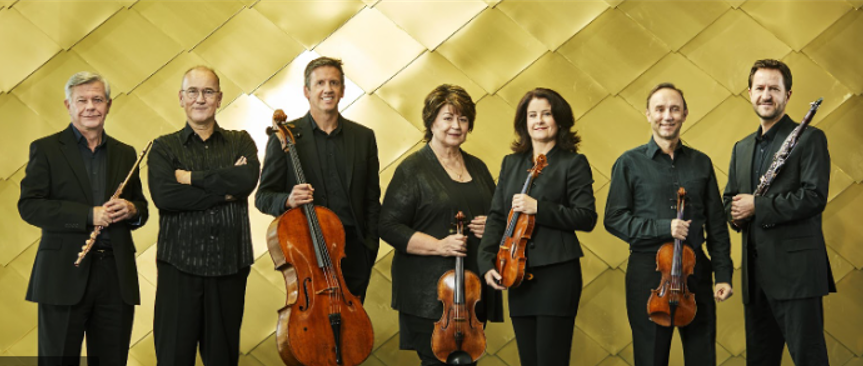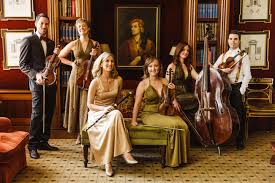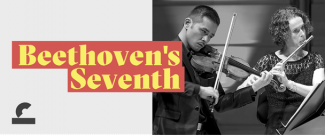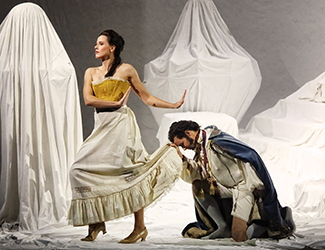Concert Review: Cycles/ Australia Ensemble UNSW
Cycles/ Australia Ensemble UNSW
John Clancy Auditorium
May 21, 2022
The Sir John Clancy Auditorium at the University of New South Wales, was the setting for the Australia Ensemble’s “Cycles” concert last Saturday. The Australia Ensemble, comprising core members violinists Dene Olding, Dimity Hall, violist Irina Morozova and cellist Julian Smiles with flautist Lisa Osmialowski, clarinetist David Griffiths, bassoonist Andrew Barnes and pianist Ian Munro presented an evening of music by Beethoven, Glanville-Hicks, Greenbaum and Brahms.
The players worked well to create a genuine sense of ensemble in Beethoven’s Trio Op. 87 in the challenging acoustic of the John Clancy. Sizeable wooden panels which surround the stage and part of the auditorium create a peformance space which is resonant but lacking in warmth. This makes it challenging for the blending of bigger ensembles, let alone smaller ones. The early composition date (contemporaneous with his Op. 1) is clear from the quality of the music if not the high opus number. Flautist Lisa Osmialowski acquitted the rapid scales throughout the work with ease, and clarinettist David Griffiths’ tone was pleasantly strong, especially in the higher register. They, alongside bassoonist Andrew Barnes, created a pleasing sound, very likely more appealing than the original instrumentation of two cors anglais and bassoon might have been.
In a break from the published programme order, the Concertino da Camera (1946) for flute, clarinet, bassoon and piano by Peggy Glanville-Hicks followed. This work, arguably the highlight of the programme, was an effective three-movement essay in a more neoclassical style than listeners would be used to from her Etruscan Concerto or Concerto Romantico, but the work does not suffer for it. The handling of harmony is the main driver throughout, with dissonances used to preserve momentum between diatonic spaces, and effective use of major chords for what are effectively ‘cadence points’ for example, at the end of the slow middle movement. Osmialowski, Griffiths and Barnes all played with appropriate verve and colour in their own right, working in favour of the clarity of the individual lines, over the piano.
Stuart Greenbaum’s Easter Island, (2008) a septet for flute, bass clarinet, string quartet and piano, is a seven-movement piece played continuously which narrates the rise and fall of civilisations on the eponymous island. It was commissioned by the Australia Ensemble, resident at the University of New South Wales and is dedicated to the composer’s children in the hope of inheriting a peaceful and viable planet. While the music depicts this with some success, the piece when considered on its own, is not quite satisfying. The programmatic elements depicting the settling of Easter Island and its subsequent overpopulation, whilst a powerful message, should not distract from the importance of evaluating the music itself. The opening solo flute passage, depicting the island and well played by Osmialowski, and the dance music, depicting the people, contain engaging material. However, the flute theme only returns right at the end with no development, and the dance music is simply repeated in large sections, in different keys with different instrumentation. The low, loud theme depicting the famous moai (which Greenbaum refers to as “stone heads”) is unheralded and apparently unconnected to what happens around it, except for the programmatic purpose. Griffiths’ talents on bass clarinet were exhibited in one short solo, and left me wanting more. Greenbaum uses the string quartet of Dene Oldling, Dimity Hall, Irina Morozov and Julian Smiles as a separate block, with little opportunity for them to explore more unusual or interesting colours with other ensemble members.
Brahms’ Piano Quartet No. 3 is his best work for this scoring. The first movement plays itself, though Oldling’s violin could become thin-toned in higher registers. The second movement is more challenging, as exhibited by a slipped passage at the climax. The real challenge in this work, however, is in the third and fourth movements, which can often drag, due to the writing and which need a strong sense of momentum with a broad colour palette to maintain interest. Smiles was largely responsible for the success of the third movement, with a round-toned, well-executed initial solo, and supporting pizzicato which provided some light but very present bass throughout. It was a feature of his playing throughout the night. The last movement didn’t carry the momentum of the third movement, as Brahms’ noodling between the subject returns began to weigh down on an ensemble which I sensed was slightly holding back on the extremes of dynamics, expression and colour.
Leaving the auditorium, it struck me that the concert title “Cycles” was only tenuously linked with the programming. Some established, truly cyclical works, from composers at the peak of their powers, more broadly representative of what the ensemble’s website called “cycles of time and nature with the associated themes of regeneration and vitality” might have created a better thematic fit. The night was nonetheless a display of solid, skilful ensemble playing, of music which was interesting if not an unqualified success.
Stephen McCarthy for SoundsLikeSydney©
Stephen McCarthy is an emerging writer and composer from Sydney, Australia. His writings on music include a series of essays on various operas; the first of these, “A Redefinition of Opera? Lay Thoughts on Seeing Philip Glass’ Akhnaten”, was published in the UNSWeetened Literary Journal. He also won the Nan Manefield Young Writers’ Award and the Senior Poetry Prize in the Mosman Youth Awards in Literature for his poem, “On the Ellipsis”.
As a composer, Stephen’s works include: for solo piano, an Improvisation, a Sonatina and a ballet after Thomas Hardy’s novel Far From the Madding Crowd; and a setting of Robert Bridges’ “Noel: Christmas Eve, 1913” for SSATBB choir.








qinv33